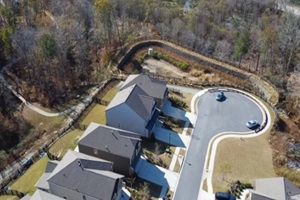 When a homeowner joins a homeowners association (HOA), they must sign an agreement that stipulates, among numerous other rules, that they will pay dues on a schedule as set forth by the HOA. Typically, these dues are paid monthly and are used for communal services such as clearing snow or garbage collection service.
When a homeowner joins a homeowners association (HOA), they must sign an agreement that stipulates, among numerous other rules, that they will pay dues on a schedule as set forth by the HOA. Typically, these dues are paid monthly and are used for communal services such as clearing snow or garbage collection service.
However, the governing body of an HOA also retains the right to levy an additional due called a special assessment in specific situations. Use of a HOA special assessment is highly regulated by California law, and failure of the HOA governing body to properly abide by these regulations could constitute a violation of resident rights.
Familiarize yourself with essential rules governing HOA special assessments to navigate your homeowners’ association effectively.
What Is a Special Assessment?
A special assessment is a unique type of dues that is separate from an HOA resident’s regularly assessed dues. Special assessments can be used when the governing body requires additional funds to cover an unexpected situation or project that benefits the community on a large scale. However, special assessments must be levied according to numerous rules stipulated within California law.
The Rules Governing Special Assessments
In order for an HOA’s governing body to remain compliant with the law when utilizing a special assessment, it must abide by the following stipulations:
The Rule of 5%
By law, an HOA cannot impose a special assessment in excess of 5% of the current year’s budgetary allotment. If the HOA has budgeted $20,000 for the year, it may not levy a special assessment that exceeds $1,000.
This amount is shared evenly among all households within the HOA, not imposed upon each household—that is, each household is not required to pay $1,000. Rather, in an HOA community of 50 homes, each household would owe $20 to reach the $1,000 total.
Should the community need to complete a project for which the price is greater than the 5% permitted via special assessment, a majority of a quorum of HOA member residents may agree during a meeting to permit a special assessment bill in excess of the 5% cap.
This ensures that the majority of the community agrees to the higher bill and removes the authority from the governing body to make this determination. Other voting arrangements and majorities are not legally permitted, even if stipulated in your HOA agreement.
The Rule of Notice
All HOA governing bodies must notify their residents of an upcoming special assessment between 30 and 60 days before the assessment is due. They must provide this notice in a confirmable manner, such as by a certified post. Alternatively, they may visit the household in person to notify residents but must speak with an individual; simply knocking on the door and leaving is not sufficient.
The Rule of Qualifying Purchases
Special assessments may only be used for specific situations, not just to cover budgetary shortfalls. The most common qualifying purchase is an emergency renovation, such as repairing a damaged roadway or fixing plumbing lines in a communal area.
These situations were not factored into the annual budget and may need additional funding to remove hazards and complete the project in a timely manner.
Other qualifying situations include renovations to or construction of communal facilities that benefit all homeowners in the neighborhood, such as pools, community centers, and parks.
Situations That Are Excluded
 Because special assessments are governed by such stringent rules dictating their use, many situations are excluded from qualification under such assessments. Special assessments cannot be used to recover budgetary shortfalls, whether due to poor planning on the governing body’s part or regular maintenance that has been left incomplete over multiple years that results in substantial damage to facilities.
Because special assessments are governed by such stringent rules dictating their use, many situations are excluded from qualification under such assessments. Special assessments cannot be used to recover budgetary shortfalls, whether due to poor planning on the governing body’s part or regular maintenance that has been left incomplete over multiple years that results in substantial damage to facilities.
Similarly, a special assessment must benefit the community at large. If a tree falls on a specific resident’s home, a special assessment cannot be used to cover the cost of repair. However, in situations in which a special assessment is justly levied, even residents who are not directly involved must contribute. For instance, if a damaged road impacts 80% of residents, the unaffected 20% may not exempt themselves.
Defend Your HOA Rights With Help from a Legal Team
Homeowners associations can utilize HOA special assessments to improve the quality of their communities and fix hazards or emergency situations through communal contributions. However, the governing body must abide by all laws when performing this task; failure to do so can constitute a breach of resident rights.
If you are unsure whether your HOA is properly exercising its authority, be sure to speak with a legal team. The attorneys at Lehr Law have helped HOA residents challenge assessments and other HOA disputes. Contact Lehr Law to schedule a consultation.
